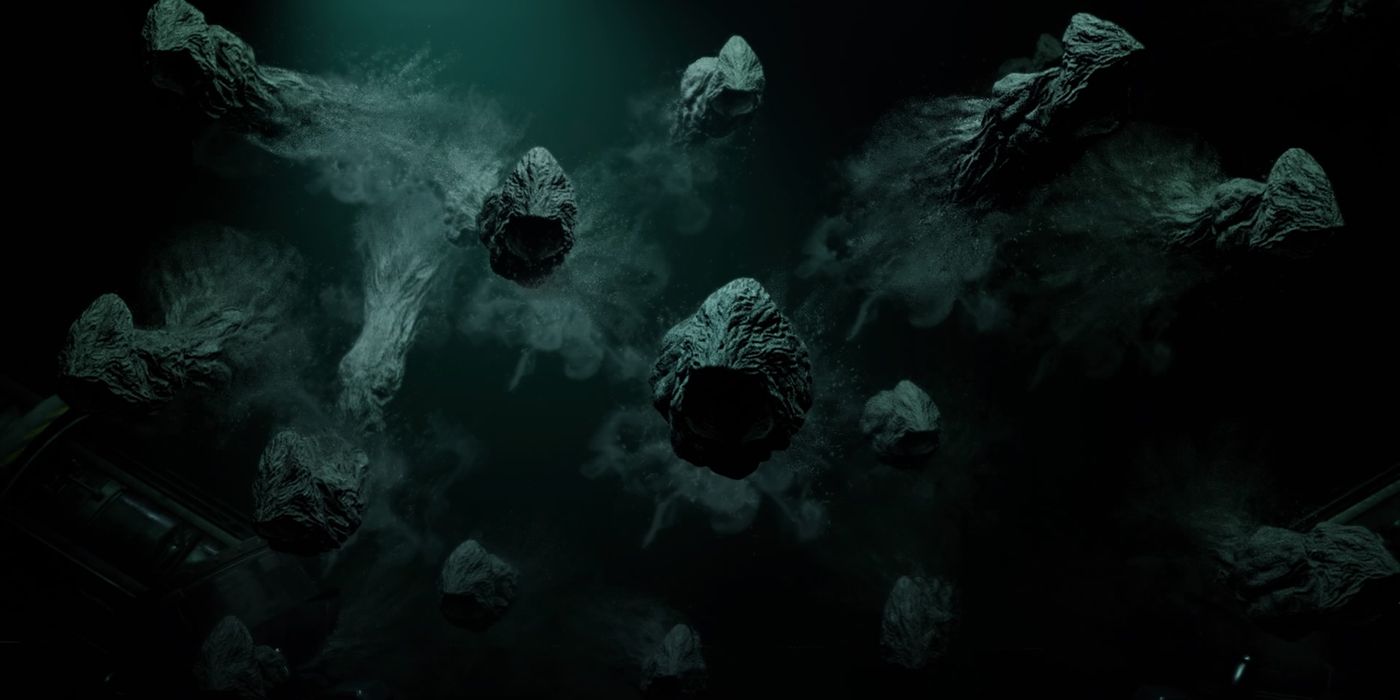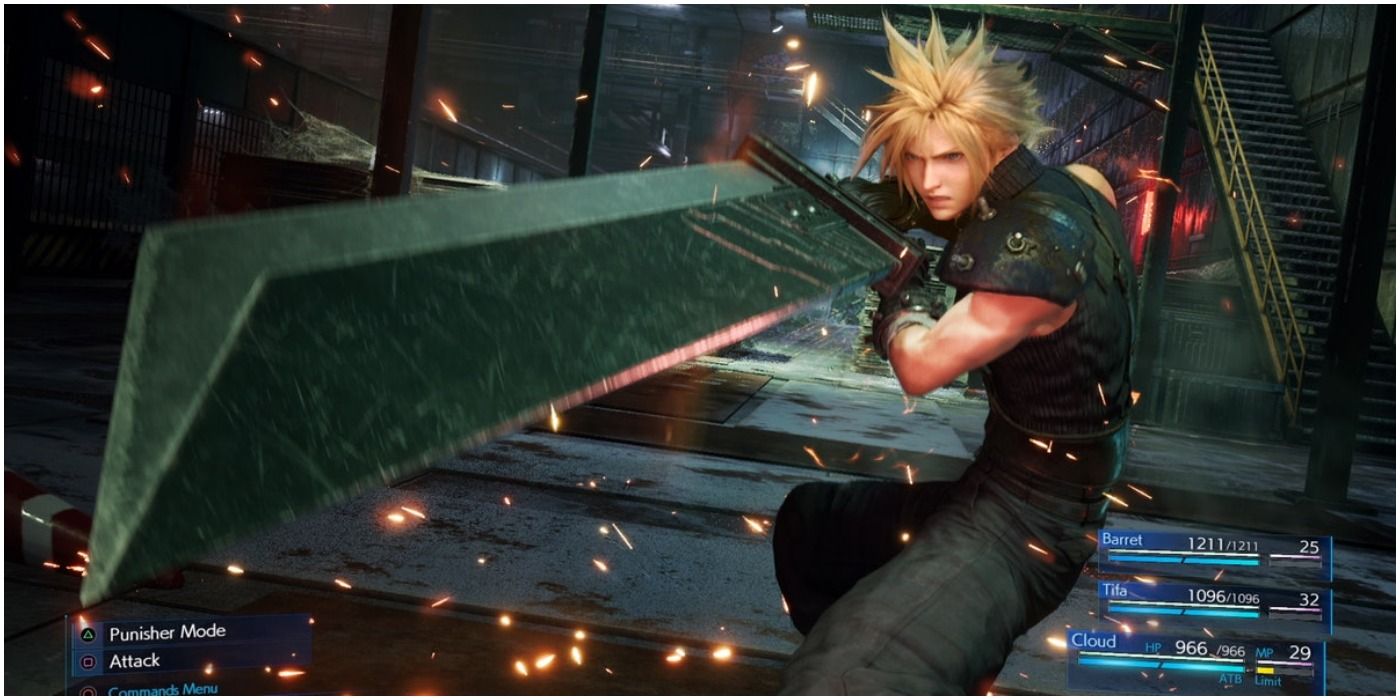After half a decade of hype and development, Final Fantasy 7 Remake has proven itself a critical and financial success, earning new fans and tapping into the original title's enduring appeal. Now, as fans speculate and eagerly anticipate the next installment in Cloud's re-imagined saga, it is worth examining how the new formula could be improved. One particular flaw is an enduring trope in JRPGs that is long overdue for retirement. And if Square Enix addresses the issue, they could create a title that ends up being as influential as the original Final Fantasy 7.
Few critics have found fault with the Remake's core gameplay. The revamped Final Fantasy 7 battle system is a particularly laudable achievement, suiting the action-oriented tastes of modern audiences while preserving the ATB and materia-based system that made the original so compelling. The title also features a healthy amount of fresh or improved mini-games and some environmental puzzles to add variance between bouts.
For the most part, Remake's story delivers too. Square Enix's beautifully rendered cut scenes nail the emotional beats of the original title while adding material that provides depth and nuance for a richer telling. The addition of Whispers to Final Fantasy 7's plot raises many questions, and while their ultimate narrative merit remains to be seen, their inclusion manages to inject fresh intrigue in a story that might otherwise be overly familiar or predictable to long-time fans.
Final Fantasy 7's Side Quests
Remake definitely has rough patches, however. In the side quest-heavy Chapters 8 and 14, enhancement gives way to excess, creating a soggy middle in a game that could otherwise be a focused, thrilling experience throughout. Ultimately, the follow up for Final Fantasy 7 Remake, confirmed to be in development, would benefit from a "less is more" approach.
The weakest parts of Remake are dead-end side quests: fight'n fetch chains that feature no persistent characters or significance to the overall story. Chasing after Wedge's cats, tracking down missing children from the Leaf House orphanage, gathering medicine ingredients for an anonymous doctor, and helping an old man recover his "inspiration" are all prime examples of unnecessary padding.
The desire to give gamers a title worth their money is not only laudable, but essential for a AAA-developed title. And, since the "Midgar Arc" is a relatively small part of the original Final Fantasy 7, it makes sense that the length of the Final Fantasy 7 Remake might be a concern. But seemingly meaningless quests only provide opportunities for characters to grind for XP and collect items that would otherwise go overlooked. Both are weak arguments for the quests' inclusion. The entire concept of grinding is onerous. And if the "optional" items are extremely useful or essential to progress deeper into the story, the side quests they are attached to suddenly become obligations.
One could also argue that in an aggressively linear game lacking an over world, side quests are the closest Remake comes to achieving the open-world feel present in most entries in the main Final Fantasy franchise. The problem is not the notion of side quests themselves, however. The non-linear quest chains leading up to the now-legendary "dress scene" introduced a number of named, compelling new characters who continued to play an active role in the story. Admittedly, not every new Final Fantasy 7 Remake character is a winner, but even the weakest among them is superior to nameless NPCs who do nothing to develop the world.
These slum missions might qualify as ways to make Cloud Strife a more relatable protagonist, except that his reactions range from indifference, to sulky sarcasm, to vicious saltiness, with no opportunity for the player to provide input. It is a curious decision, given that Remake already has a choice system that affects the outcome of certain scenes, though its usage and impact are currently understated, and arguably underutilized. Giving Cloud the ability to choose his responses would lend some storytelling weight to these lesser quests, but there is a better, simpler solution: do away with dead-end side quests altogether.
Final Fantasy: Bucking the Trend
Fortunately, the broader Final Fantasy franchise is already trending in that direction. Final Fantasy 15's side quests were almost exclusively nameless hunting missions, neutered of narrative value by anonymity with no sense of continuity or meaningful outcomes. Remake's quests are much livelier and immersive by comparison, but the sequel could push things even further, by making every quest giver a named character in the story.
Tetsuya Nomura has created such an enormous cast that there are more than enough options to choose from, even if Square Enix does not add any new villains or supporting characters in new installments. The new party members likely to join the Final Fantasy 7 Remake sequel would provide many opportunities for personal, character-driven quests like Mass Effect's loyalty missions, or Persona's confidant system. Those lasting relationships yield continuity and consequence, which are the key distinctions between bloat and enrichment.
There is no question that anonymous quest givers are easier to implement with stories that can exist in single-serving vacuums. But there is still a strong argument for stripping out dead-end quests, even if it would result in slightly less content. Like the overwhelming majority of JRPGs, the Final Fantasy 7 Remake is arguably too long. Rather than serving as a selling point, the sheer scope of play associated with modern JRPGs has become a scarecrow to many gamers. Potential players who are interested in a title's premise may be put off by the daunting time commitment.
Some narrative-driven designers, like Quantic Dream's David Cage, recently pivoted to produce shorter games with more polish. While it is difficult to imagine two creators who approach video game storytelling more differently than Nomura and Cage, the notion may still have merit—especially for adult gamers who came of age with the original Final Fantasy 7 and now have less free time on their hands. If Square Enix takes a stand against stunted JRPG side quests, Final Fantasy 7 Remake Part 2 will be a stronger game for it. And such a high profile release may be enough to get other developers to follow suit.
Final Fantasy 7 Remake is available now for PlayStation 4. Its sequel is currently in development.



